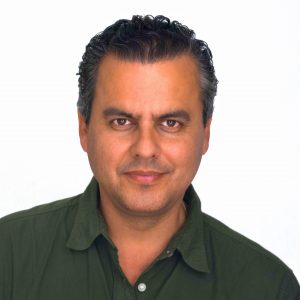Latest Updates: FIU Presidential Search | Healthy Living | Statement of Free Expression
Chair’s Special Messagehdeharo2022-08-22T15:15:54+00:00
Chair’s Special Message

Dear LAEUD Faculty and Students,As we begin another academic year, I thought it appropriate to share a brief story of a night I spent many years ago on the bridge of the USS Thach, a US Navy frigate where I spent the better part of four years as a naval officer, home ported in Yokosuka, Japan, in the early 1990’s. I served all over Southeast Asia, the South China Sea, the Arabian Sea, and the Persian Gulf, during the tense geopolitical years that brought us conflicts like Desert Storm and Desert Shield, which likely long predate many of you, but whose lessons I reflect on every now and then, however unlikely and foreign they may seem to the academic life I’ve now known for over seventeen years.As a junior officer who had been trained as an engineer, most of my time on board the Thach was running the Engineering Plant and later the Combat Information Center, which you may recognize in movies and ads as that pitch black room that’s dimly illuminated by radar screens and digital displays. The bridge is quite different than these two spaces. On the bridge, you have your eye on the horizon ahead and around, wind and waves sometimes spraying high up against its bulkheads, shipping moving all around you depending on what part of the world you may be sailing through. You work with a small team whose job it is to look out for danger, navigate according to plan, listen and communicate with any neighboring ships, and keep the ‘Old Man,’ as the ship’s captain is also known, informed of things urgent and important. The Officer of the Deck on the bridge and the Engineering Officer in the engineering plant are in charge of anything and everything that happens during their watches, which come in reliably tense batches of four, sometimes six consecutive hours, several times a day, day in and day out.That night, I was training as Officer of the Deck with my good friend and colleague Lieutenant Eric Humphrey, as I was in the process of getting my own qualifications to run the ship’s bridge. It was probably three or four hours past midnight and we were sailing a stretch that was infamous for its dense traffic and for ships that didn’t always observe the International Rules of the Road or kept their vessels’ lights on as these rules required. So we prepared accordingly, revved up both of our gas turbine engines to give us an edge if we needed it, and put everyone on alert. When a vessel approached very closely to our starboard/right side in an attempt to pass and narrowed our available space to our port/left side to avoid oncoming traffic, we were ready. We sped up to get ahead only to see the same vessel increase her speed. We radioed and signaled for them give us room on our starboard side. We let the Old Man know. We kept pace for a bit longer and were ready to gun it and pull way ahead before our window closed and we would otherwise find ourselves bearing down onto oncoming shipping in a deadly scenario. We knew we could go faster than any other ship out there and we would have, had we not paused for what seemed like an eternal few seconds to reconsider. The answer, it turned out, was not to move faster in order to get ahead. We cut our speed. We let the starboard passer pass, and in so doing realized that once that unresponsive ship was ahead of us, just a few yards beyond was another vessel, racing ahead shining what seemed like flashlights in our direction in a parallel course, making it impossible for the ship that passed us to maneuver out of our way. The real obstacle was in fact the racing vessel beyond that we could not see with our eyes or with our radar because of how close it was. We slowed down to get ahead. We slowed down to make it safely home.Such was that night, somewhere in an ocean in Southeast Asia. A lesson that made us realize that our immediate obstacle was not the reason for our troubles. The things that we don’t see are often the most consequential, and sometimes we need to slow down and reflect, however briefly, to see them and understand what is really at stake.May we have experiences that remind us that the long road ahead requires ambition and tenacity, but also reflection and pause when we think we have no time for them. Have a great year and a great semester,
Roberto Rovira, RLA, ASLA
Chair and Professor

